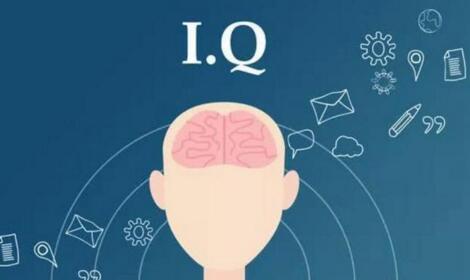那些高智商的人每天都在做什么(二)
正文翻译

Sondre Rasch
I have only three friends who I know for certain have over 140 IQ. I will now describe things I have observed them to do all day, that differ from my other friends.
One is a mathematician, who works as a programmer and entrepreneur.
Another is an economist, formerly a consultant and now also a tech-entrepreneur.
Third is a programmer, background in computer science, now lead engineer at a startup
我只有三个这样的朋友,我肯定他们的智商超过140。现在,我将说说我观察到他们整天所做的与其他朋友不同的事情。
一位是数学家,他是程序员和企业家。
另一位是经济学家,以前是顾问,现在也是科技企业家。
第三位是程序员,计算机科学背景,现在是一家初创公司的首席工程师
1. Problem solving all the time, even when socializing. E.g. conversation over a beer about how to use machine learning to predict real estate prices last night.
2. Read / watch smarter stuff, on average. They send scientific articles I have to read, other friends send TV-series I have to watch.
3. Open minded. This is very surprising to me. But actually all of them are very open minded when it comes to… anything, sex, drugs, adventure, you name it. They all are really open to new experiences. Which also means, they do more stuff like that during a normal day.
4. Care a lot about improving themselves. Optimizing nutrition, sleeping, excercise, their social skills etc. They think and talk a lot about how to live better and smarter.
5. Interested in «everything». The programmer is also super into politics, science and fashion, the mathematician is also super into dancing and the economist is just super into pretty anything from nootropics to relationships.
6. Lastly, as another commenter mentioned, they do feel frustrated talking to low-IQ people sometimes. Especially with people who insist to use a long time to make a banal point, or are arrogant on subjects they don’t really understand that well. Anyone would be of course, but these experiences seems to happen a lot more to them than others.
And yes, as one answerer mentioned, they prefer more strategic or puzzle games on average than my other friends.
1.总是解决问题,即使是在社交场合。举个例子,昨晚在一场酒会上谈论如何使用机器学习来预测房地产价格。
2.一般情况下,阅读/观看更聪明的东西。他们发送我可供阅读的科学文章,而其他朋友发送我可供观看的电视剧。
3.思想开放。这让我很惊讶,但事实上,当涉及到任何事情,比如性、毒品、冒险,只要你能想到的,他们都是非常开放的。他们都非常乐于接受新的体验。这也意味着,他们在平凡的一天里会做更多类似的事情。
4.非常关注对自己的提高。例如营养、睡眠、锻炼、社交技能等。他们思考和谈论了很多如何以更好、更聪明的方式来生活。
5.对“一切”感兴趣。程序员对政治、科学和时尚很感兴趣,数学家对舞蹈非常感兴趣,而经济学家则对任何事物都非常感兴趣。
6.最后,正如另一位评论者所提到的,他们有时确实会对与低智商人群交谈感到沮丧。尤其是那些用很长时间却来提出陈词滥调的人,或者对他们不太理解的内容很傲慢的人。当然,任何人都会,但这些经历似乎发生在他们身上的(次数)比其他人多得多。
是的,正如一位回答者提到的,他们比我的其他朋友更喜欢战略游戏或益智游戏。
Some things they do not have in common
有些事情上他们没有共同点
They do not have identical personalities! One of them is an introvert, one in the middle and one a clear extrovert. One more of a thinker, two of them more feelers. No obvious correlation here.
And yes, it is of course true that they are also people like the rest of us. Who feel, cry, love, eat, and all the rest. But that’s not really what separates them from lower-IQ people when it comes to their daily activites.
他们没有相同的性格!其中一个是内向型,一个是在中间,一个明显外向。一个是思想家,两个是探索者。这没有明显的相关性。
是的,当然,他们也是我们其他人一样的人。他们有感觉、会哭、会爱、会吃等等,但这并不是他们在日常活动中与低智商人群(区分开来)的真正区别。


Sondre Rasch
I have only three friends who I know for certain have over 140 IQ. I will now describe things I have observed them to do all day, that differ from my other friends.
One is a mathematician, who works as a programmer and entrepreneur.
Another is an economist, formerly a consultant and now also a tech-entrepreneur.
Third is a programmer, background in computer science, now lead engineer at a startup
我只有三个这样的朋友,我肯定他们的智商超过140。现在,我将说说我观察到他们整天所做的与其他朋友不同的事情。
一位是数学家,他是程序员和企业家。
另一位是经济学家,以前是顾问,现在也是科技企业家。
第三位是程序员,计算机科学背景,现在是一家初创公司的首席工程师
1. Problem solving all the time, even when socializing. E.g. conversation over a beer about how to use machine learning to predict real estate prices last night.
2. Read / watch smarter stuff, on average. They send scientific articles I have to read, other friends send TV-series I have to watch.
3. Open minded. This is very surprising to me. But actually all of them are very open minded when it comes to… anything, sex, drugs, adventure, you name it. They all are really open to new experiences. Which also means, they do more stuff like that during a normal day.
4. Care a lot about improving themselves. Optimizing nutrition, sleeping, excercise, their social skills etc. They think and talk a lot about how to live better and smarter.
5. Interested in «everything». The programmer is also super into politics, science and fashion, the mathematician is also super into dancing and the economist is just super into pretty anything from nootropics to relationships.
6. Lastly, as another commenter mentioned, they do feel frustrated talking to low-IQ people sometimes. Especially with people who insist to use a long time to make a banal point, or are arrogant on subjects they don’t really understand that well. Anyone would be of course, but these experiences seems to happen a lot more to them than others.
And yes, as one answerer mentioned, they prefer more strategic or puzzle games on average than my other friends.
1.总是解决问题,即使是在社交场合。举个例子,昨晚在一场酒会上谈论如何使用机器学习来预测房地产价格。
2.一般情况下,阅读/观看更聪明的东西。他们发送我可供阅读的科学文章,而其他朋友发送我可供观看的电视剧。
3.思想开放。这让我很惊讶,但事实上,当涉及到任何事情,比如性、毒品、冒险,只要你能想到的,他们都是非常开放的。他们都非常乐于接受新的体验。这也意味着,他们在平凡的一天里会做更多类似的事情。
4.非常关注对自己的提高。例如营养、睡眠、锻炼、社交技能等。他们思考和谈论了很多如何以更好、更聪明的方式来生活。
5.对“一切”感兴趣。程序员对政治、科学和时尚很感兴趣,数学家对舞蹈非常感兴趣,而经济学家则对任何事物都非常感兴趣。
6.最后,正如另一位评论者所提到的,他们有时确实会对与低智商人群交谈感到沮丧。尤其是那些用很长时间却来提出陈词滥调的人,或者对他们不太理解的内容很傲慢的人。当然,任何人都会,但这些经历似乎发生在他们身上的(次数)比其他人多得多。
是的,正如一位回答者提到的,他们比我的其他朋友更喜欢战略游戏或益智游戏。
Some things they do not have in common
有些事情上他们没有共同点
They do not have identical personalities! One of them is an introvert, one in the middle and one a clear extrovert. One more of a thinker, two of them more feelers. No obvious correlation here.
And yes, it is of course true that they are also people like the rest of us. Who feel, cry, love, eat, and all the rest. But that’s not really what separates them from lower-IQ people when it comes to their daily activites.
他们没有相同的性格!其中一个是内向型,一个是在中间,一个明显外向。一个是思想家,两个是探索者。这没有明显的相关性。
是的,当然,他们也是我们其他人一样的人。他们有感觉、会哭、会爱、会吃等等,但这并不是他们在日常活动中与低智商人群(区分开来)的真正区别。

评论翻译
Katy Kircher
My IQ was tested when I joined the Army. A member of the Army psych unit came to see me at work one afternoon. He told me he wanted to see what I looked like because my score on the IQ test was so high, they had to completely rewrite it. He told me that my IQ was above 180.
IQ tests measure our capacity for abstract thought. They measure how good we are at finding patterns and thinking in imaginary worlds.
They don’t measure our capacity to do anything practical at all. So people with very high IQs, like me, are not necessarily going to be the best in their chosen field. They are not necessarily good at managing other people or raising children or playing sports.
I had a high flying career for many years. When I stopped working, I didn’t stop learning. I studied academic books but I also learned some practical skills like how to paint a house and how to split firewood. I took up hobbies that I didn’t have to do well. I make patchwork quilts - and they are not all that good, but I enjoy the activity and I enjoy hanging out with other people who make quilts.
If I wasn’t constantly learning new things I might die of boredom. I can’t sit around not using my mind. My library is growing all the time because I am always studying new, obscure, topics.
I try to make some kind of balance between exercising my mind on difficult new topics, and learning practical skills, like crochet (which is still beyond me!!).
A long time ago, I learned that the key to a contented life is, never be afraid of looking stupid. I ask the stupid questions all the time. Sometimes I get stupid answers.
当我参军时,我做了智商测试。一天下午,陆军心理科的一名成员来看我工作。他告诉我,他想看看我长什么样,因为我的智商测试分数太高了,他们不得不改写结果。他告诉我我的智商超过180。
智商测试衡量我们的抽象思维能力。他们衡量我们在想象世界中发现规律的能力和思考的能力。
他们根本没有衡量我们做任何实际工作的能力。所以像我这样智商很高的人,不一定会在他们指定领域内成为做得最好的。聪明的人不一定擅长管理别人,也不一定擅长抚养孩子或运动。
多年来,我的事业都很成功。当我停止工作时,我没有停止学习。我研读了学术书籍,也学到了一些实用技能,比如如何给房子刷漆和如何劈柴。我发展了一些我不必做得很好的爱好。我做拼布被子-做得不是很好,但我喜欢这种活动,我喜欢和其他做被子的人一起出去玩。
如果我不再继续学习新东西,我可能会无聊死。我不能坐着不动脑子。我的知识面一直在拓展,因为我总是在研究新的、晦涩难懂的主题。
我试着在锻炼解决新难题的思维和学习实际技能之间取得某种平衡,比如钩针(这对我来说还是个难题!!)。
很久以前,我了解到对生活满意的关键是,永远不要害怕看起来愚蠢。我总是问那些愚蠢的问题,有时我也会得到愚蠢的答案。
Sarah Fitzpatrick
Mine was 168 last time I was tested, so I’m fairly sure I qualify.
These are the main things I’ve found that seem to distinguish me from friends with lower IQs:
上次测试时我的成绩是168,所以我很确定我有资格。
这些是我发现的似乎将我与智商较低的朋友区分开来的主要原因:
I tend to be mentally active all the time, I rarely watch TV or sit thinking about nothing (I do meditate to give my poor brain some down time to avoid burnout), I analyse most things in depth and whether it takes me ten minutes or ten days if I have a decision to make (such as which harness to buy for my dog so he can go running) I’ll keep looking for information until I’m absolutely certain I’ve made the best choice I could in that situation.
我总是精神活跃,我很少看电视或坐着什么都不想(我做冥想是为了给我可怜的大脑一些休息时间,避免精疲力竭)。我深入分析大多数事情,如果要作出决定(比如给我的狗买什么样的背带以便它可以跑步),我可能会想两分钟,也可能想两天。我会一直寻找信息,直到我绝对确定在这种情况下自己做出了最佳选择。
My mind is geared towards problem-solving, the moment someone tells me they have a problem I’m brainstorming at a rapid rate to come up with a solution.
我的思维倾向于解决问题,当有人告诉我他们有问题时,我会迅头脑风暴以提出解决方案。
I’m far less likely to unquestioningly accept the status quo. For example, during the third year of my degree I conducted research to test whether people could identify the meaning of a visual stimulus in under 10 milliseconds. Around 60 years of research and theory said no, but I’d read a couple of papers that suggested the existing knowledge was inaccurate, so I wanted to investigate. Two tutors with doctorates told me I was wrong, my research was pointless and I was going to get a negative result and that would impact on my grades. I stuck to my guns and my results supported my theory to the extent that said tutors gave me a pat on the back. Shortly after that a team of researchers conducted a similar study and obtained the same results.
我不太可能毫无疑问地接受现状。例如,在我攻读学位的第三年,我进行了一项研究,测试人们是否能在10毫秒内识别视觉刺激。近60年的研究和理论都认为不可以,但我读了几篇论文后,认为现有的知识是不准确的,所以我想进行调查。两位有博士学位的导师告诉我,我错了,我的研究毫无意义,我会得到一个坏结果,这会影响我的成绩。但我坚持自己的观点,而我的结果在某种程度上支持了我的理论,这些导师对我表示赞许。不久之后,一组研究人员进行了一项类似的研究,并获得了相同的结果。
New ideas come to me really easily. Fellow students used to ask me how I came up with research ideas and the question really stumped me because I didn’t actually do anything, there was no genius process, I simply read things and when I noticed a gap in the existing knowledge I looked for a way to fill it.
我很容易想到新的想法。同学们过去常问我是如何想出研究思路的,这个问题真的让我尴尬,因为我实际上什么都没做,没有天赋异禀,我只是阅读一些东西。当我注意到现有知识中存在空白时,我就想办法填补它。
I care less about opinions. When someone looks down on me because I’m not wearing make-up and I don’t follow fashion it doesn’t bother me, I know their response is the result of ingrained social norms that have absolutely no merit, so I don’t cry into my coffee (although I do feel empathy for people who feel they have to conform to those norms). If I’m discussing something with someone and their point of view is based solely on their own experience and there’s a wealth of data that suggests they’re wrong I’ll mention it and if they continue to press their point of view I’ll nod, smile, and ignore them.
我不太在乎意见。 当有人因为我不化妆和不追随时尚而看不起我时,这不会打扰我。我知道他们的反应是根深蒂固的社会准则的结果,这些完全没有价值,所以我不这样做,不顾影自怜(尽管我确实对那些认为他们必须遵守这些准则的人感到同情)。如果我正在与某人讨论某事,而他们的观点完全基于他们自己的经验,并且有大量数据表明他们是错误的,我会提一提。如果他们继续坚持他们的观点,我会点头,微笑,然后无视他们。
My IQ was tested when I joined the Army. A member of the Army psych unit came to see me at work one afternoon. He told me he wanted to see what I looked like because my score on the IQ test was so high, they had to completely rewrite it. He told me that my IQ was above 180.
IQ tests measure our capacity for abstract thought. They measure how good we are at finding patterns and thinking in imaginary worlds.
They don’t measure our capacity to do anything practical at all. So people with very high IQs, like me, are not necessarily going to be the best in their chosen field. They are not necessarily good at managing other people or raising children or playing sports.
I had a high flying career for many years. When I stopped working, I didn’t stop learning. I studied academic books but I also learned some practical skills like how to paint a house and how to split firewood. I took up hobbies that I didn’t have to do well. I make patchwork quilts - and they are not all that good, but I enjoy the activity and I enjoy hanging out with other people who make quilts.
If I wasn’t constantly learning new things I might die of boredom. I can’t sit around not using my mind. My library is growing all the time because I am always studying new, obscure, topics.
I try to make some kind of balance between exercising my mind on difficult new topics, and learning practical skills, like crochet (which is still beyond me!!).
A long time ago, I learned that the key to a contented life is, never be afraid of looking stupid. I ask the stupid questions all the time. Sometimes I get stupid answers.
当我参军时,我做了智商测试。一天下午,陆军心理科的一名成员来看我工作。他告诉我,他想看看我长什么样,因为我的智商测试分数太高了,他们不得不改写结果。他告诉我我的智商超过180。
智商测试衡量我们的抽象思维能力。他们衡量我们在想象世界中发现规律的能力和思考的能力。
他们根本没有衡量我们做任何实际工作的能力。所以像我这样智商很高的人,不一定会在他们指定领域内成为做得最好的。聪明的人不一定擅长管理别人,也不一定擅长抚养孩子或运动。
多年来,我的事业都很成功。当我停止工作时,我没有停止学习。我研读了学术书籍,也学到了一些实用技能,比如如何给房子刷漆和如何劈柴。我发展了一些我不必做得很好的爱好。我做拼布被子-做得不是很好,但我喜欢这种活动,我喜欢和其他做被子的人一起出去玩。
如果我不再继续学习新东西,我可能会无聊死。我不能坐着不动脑子。我的知识面一直在拓展,因为我总是在研究新的、晦涩难懂的主题。
我试着在锻炼解决新难题的思维和学习实际技能之间取得某种平衡,比如钩针(这对我来说还是个难题!!)。
很久以前,我了解到对生活满意的关键是,永远不要害怕看起来愚蠢。我总是问那些愚蠢的问题,有时我也会得到愚蠢的答案。
Sarah Fitzpatrick
Mine was 168 last time I was tested, so I’m fairly sure I qualify.
These are the main things I’ve found that seem to distinguish me from friends with lower IQs:
上次测试时我的成绩是168,所以我很确定我有资格。
这些是我发现的似乎将我与智商较低的朋友区分开来的主要原因:
I tend to be mentally active all the time, I rarely watch TV or sit thinking about nothing (I do meditate to give my poor brain some down time to avoid burnout), I analyse most things in depth and whether it takes me ten minutes or ten days if I have a decision to make (such as which harness to buy for my dog so he can go running) I’ll keep looking for information until I’m absolutely certain I’ve made the best choice I could in that situation.
我总是精神活跃,我很少看电视或坐着什么都不想(我做冥想是为了给我可怜的大脑一些休息时间,避免精疲力竭)。我深入分析大多数事情,如果要作出决定(比如给我的狗买什么样的背带以便它可以跑步),我可能会想两分钟,也可能想两天。我会一直寻找信息,直到我绝对确定在这种情况下自己做出了最佳选择。
My mind is geared towards problem-solving, the moment someone tells me they have a problem I’m brainstorming at a rapid rate to come up with a solution.
我的思维倾向于解决问题,当有人告诉我他们有问题时,我会迅头脑风暴以提出解决方案。
I’m far less likely to unquestioningly accept the status quo. For example, during the third year of my degree I conducted research to test whether people could identify the meaning of a visual stimulus in under 10 milliseconds. Around 60 years of research and theory said no, but I’d read a couple of papers that suggested the existing knowledge was inaccurate, so I wanted to investigate. Two tutors with doctorates told me I was wrong, my research was pointless and I was going to get a negative result and that would impact on my grades. I stuck to my guns and my results supported my theory to the extent that said tutors gave me a pat on the back. Shortly after that a team of researchers conducted a similar study and obtained the same results.
我不太可能毫无疑问地接受现状。例如,在我攻读学位的第三年,我进行了一项研究,测试人们是否能在10毫秒内识别视觉刺激。近60年的研究和理论都认为不可以,但我读了几篇论文后,认为现有的知识是不准确的,所以我想进行调查。两位有博士学位的导师告诉我,我错了,我的研究毫无意义,我会得到一个坏结果,这会影响我的成绩。但我坚持自己的观点,而我的结果在某种程度上支持了我的理论,这些导师对我表示赞许。不久之后,一组研究人员进行了一项类似的研究,并获得了相同的结果。
New ideas come to me really easily. Fellow students used to ask me how I came up with research ideas and the question really stumped me because I didn’t actually do anything, there was no genius process, I simply read things and when I noticed a gap in the existing knowledge I looked for a way to fill it.
我很容易想到新的想法。同学们过去常问我是如何想出研究思路的,这个问题真的让我尴尬,因为我实际上什么都没做,没有天赋异禀,我只是阅读一些东西。当我注意到现有知识中存在空白时,我就想办法填补它。
I care less about opinions. When someone looks down on me because I’m not wearing make-up and I don’t follow fashion it doesn’t bother me, I know their response is the result of ingrained social norms that have absolutely no merit, so I don’t cry into my coffee (although I do feel empathy for people who feel they have to conform to those norms). If I’m discussing something with someone and their point of view is based solely on their own experience and there’s a wealth of data that suggests they’re wrong I’ll mention it and if they continue to press their point of view I’ll nod, smile, and ignore them.
我不太在乎意见。 当有人因为我不化妆和不追随时尚而看不起我时,这不会打扰我。我知道他们的反应是根深蒂固的社会准则的结果,这些完全没有价值,所以我不这样做,不顾影自怜(尽管我确实对那些认为他们必须遵守这些准则的人感到同情)。如果我正在与某人讨论某事,而他们的观点完全基于他们自己的经验,并且有大量数据表明他们是错误的,我会提一提。如果他们继续坚持他们的观点,我会点头,微笑,然后无视他们。










